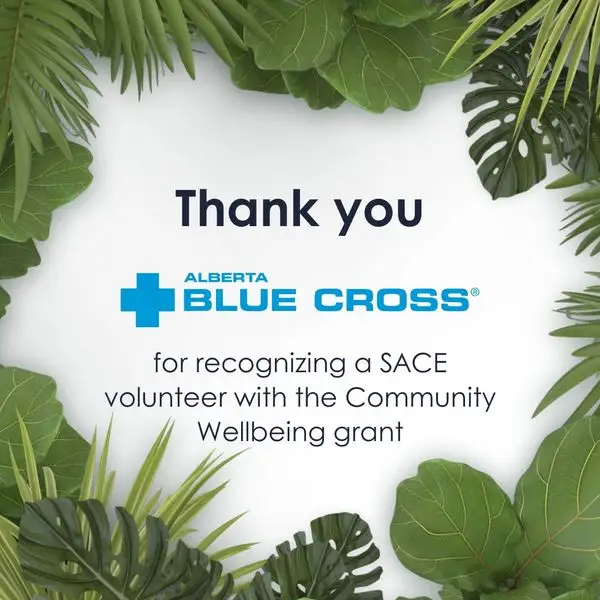How We’re Making a Difference
At SACE, we're focused on the impact we're making on the lives of people who have experienced sexual violence, and on contributing to healthier communities. This section of our 2024-2025 Annual Impact Report features highlights of how we're making a difference, from professional, evidence-informed education and support to community development and engagement initiatives.
Professional, Evidence-Informed Services
Across Public Education programs:
Across Counselling programs:

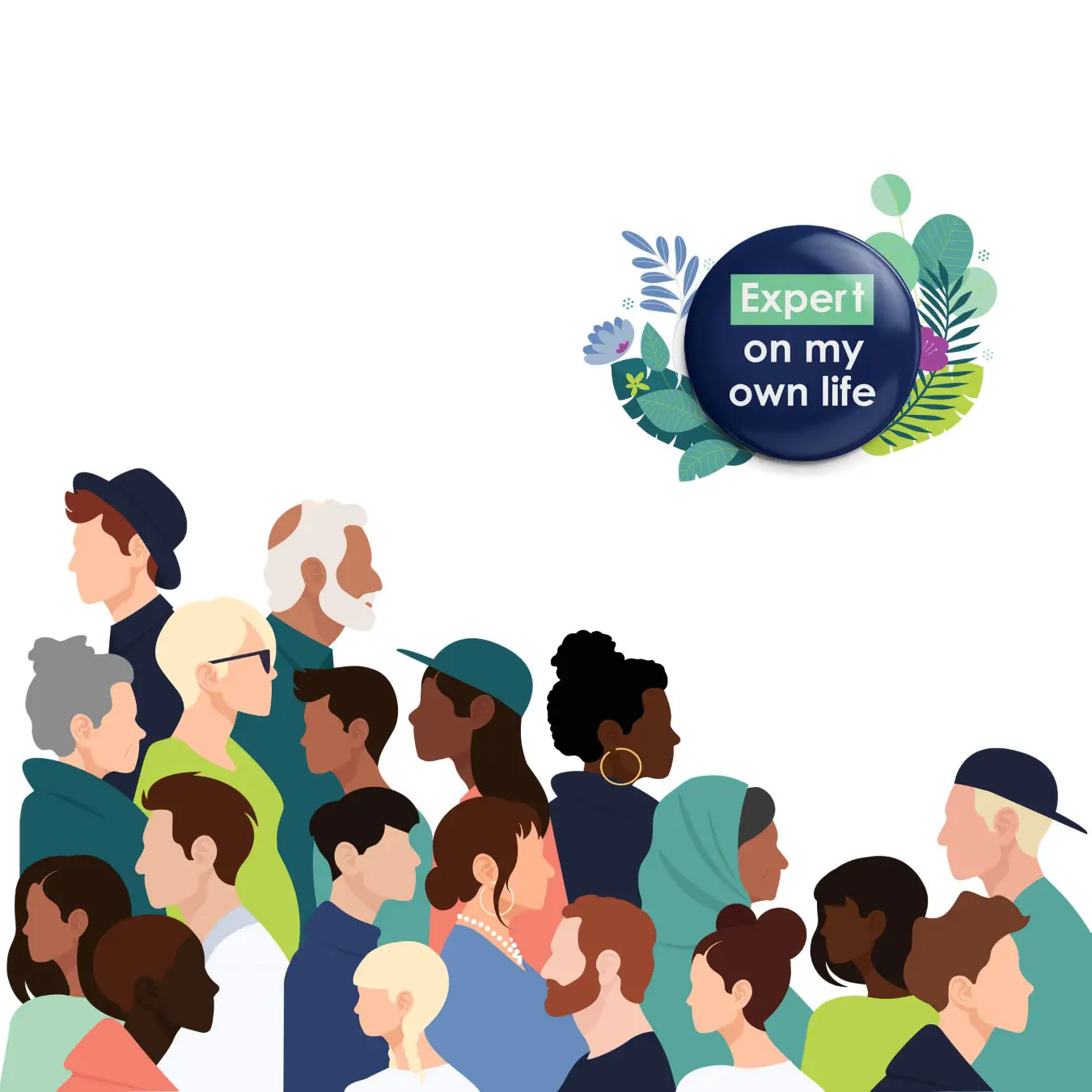
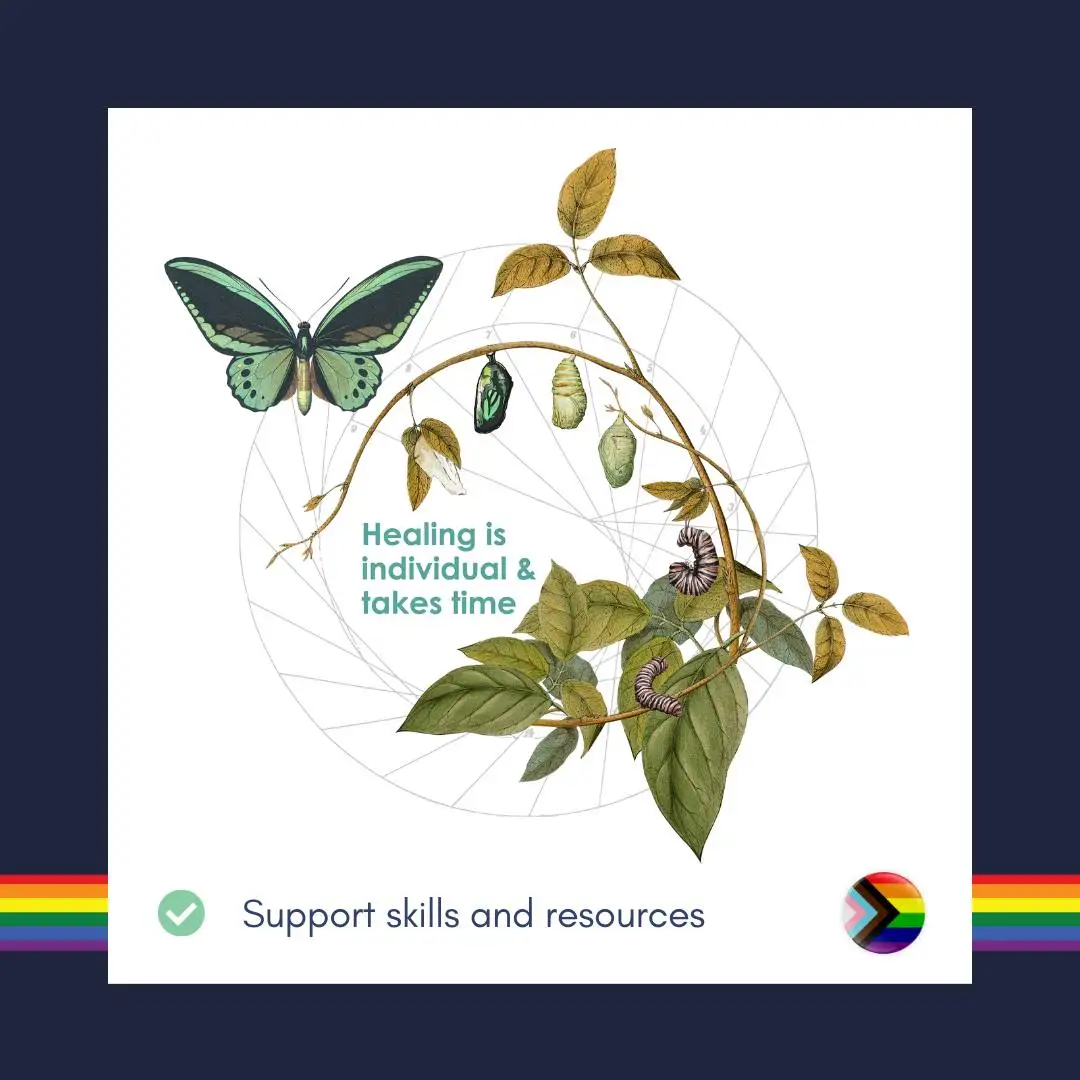
Improving Outcomes
Program & Staff Development
Community and Agency Development (CAD) team members are highly involved in the development of new programs across the agency, through the development of evaluations plans, client/participant evaluations, branded resources and materials, and the creation of a communications plan for sharing new programming across our website and social media platforms. This ensures rigorous and consistent program development and evaluation, while supporting program staff capacity. Evidence-informed, professional offerings ranging from new groups, to presentations, standalone resources and more are also supported by the CAD team, who coordinate content development and design, production, and promotion.
Every year, SACE staff are supported in their ongoing learning and development through professional development opportunities. Some highlights of our learnings that supported effective, inclusive, evidence-informed service delivery this year:
- Tailored training with a SART nurse for both the CE and Clinical departments, covering exams, third option, and more.
- College of Alberta Psychologists Professional Conduct Presentation: Navigating ethics and professional conduct matters in psychological practice.
- An all-staff training on gender affirming care in Alberta, and Skipping Stone Clinical-Focused Foundational Education – Building Trans Affirming Spaces trainings
- Anti-Oppression Peer Learning led by Community Engagement staff, focused on anti-oppressive learning opportunities and strategies to reframe our perspectives and better integrate these practices into our community work.
- Disability with VAD: Presentation from individuals with lived experience regarding intersectionality of disability and considerations for clinical work
- An all-staff training from SAGE on Supporting Older Adults
- Immersive cultural learning opportunities, including queer community events, Ribbon Skirt Workshop, Moccasin Workshop, Swing Session, Medicine picking, Riverwalk, and a multicultural potluck.
- Tailored training with a SART nurse for both the CE and Clinical departments, covering exams, third option, and more.
- College of Alberta Psychologists Professional Conduct Presentation: Navigating ethics and professional conduct matters in psychological practice.
- An all-staff training on gender affirming care in Alberta, and Skipping Stone Clinical-Focused Foundational Education - Building Trans Affirming Spaces trainings
- Anti-Oppression Peer Learning led by Community Engagement staff, focused on anti-oppressive learning opportunities and strategies to reframe our perspectives and better integrate these practices into our community work.
- Disability with VAD: Presentation from individuals with lived experience regarding intersectionality of disability and considerations for clinical work
- An all-staff training from SAGE on Supporting Older Adults
- Immersive cultural learning opportunities, including queer community events, Ribbon Skirt Workshop, Moccasin Workshop, Swing Session, Medicine picking, Riverwalk, and a multicultural potluck.
PUT PRACTICUMS SECTION HERE
Tailored solutions to support professionals across a range of sectors in their efforts to address sexual violence.
[CAN WE FIT 1 MORE:
- Consultation, Collaboration, and Tailored Education for Professionals Working With Priority Populations
AND FUN STAT:
218 Organizations Received Professional Education Services
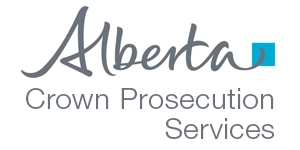
Education Impact Highlight: An Empathy Framework for Consent
As an organization built on a mandate to provide comprehensive support for survivors of sexual violence, our Public Education (PE) program is essential to achieving this mandate. We support and honour survivors through innovative, proactive social change work by providing Edmontonians with the necessary skills, knowledge, and reflective learning opportunities to understand their role in preventing sexual violence and extending care to those impacted. Central to this work is the concept of consent – a concept that has become mainstream in recent years. We find that education participants typically recognize consent as a key principle for healthy and respectful relationships, however, some participants voice that they find consent too awkward and rigid to integrate into their practices. In this light, consent is seen as transactional – a list of boxes to check to get what you want without causing harm. That approach to consent can absolutely prevent sexual violence, but it has limited potential to foster healthy relationships or intimacy. At SACE, our public education prompts participants to view consent through an emotional intelligence framework instead. Within this framework, participants are encouraged to practice consent by attuning to and investing in their partners’ experience and wellbeing. Teaching consent through the practice of empathy also invites participants to extend their practice beyond relationships, and to apply principles of consent, respect, and mutuality in all aspects of life. Paired with concrete and foundational information on the legal standards of consent and sexual assault, this empathy framework for consent also serves to deepen participant understandings of their rights and responsibilities in all relationships – it seeks to advance sexual violence prevention models by shifting the mindset of “how do I get what I want?” to “how can I be accountable to others & create positive experiences for everyone involved?”
The success of this work is demonstrated through the positive feedback and gratitude that participants, teachers, and administrators share with our educators. For example, participants thanked educators for not only providing a space to talk about this consent, but doing so in a way that adequately addresses the inherently intersectional nature of sexual violence: “I wanted to take a moment to sincerely thank you for taking the time to present to our class. Your presentation on sexual violence was incredibly impactful, and we deeply appreciate the way you approached the topic through an anti-oppressive lens. It’s always a privilege to hear from community members who are doing such important and inspiring work. Your passion and dedication were truly appreciated, and I know the students and I found it valuable.” Additionally, students expressed admiration for SACE educators’ ability to cultivate safe spaces for students to “share and be vulnerable” and engage with the material through clear and informative statistics, definitions, examples, and activities. Many students also shared that the appreciated that they were able to “ask questions without shame.” This feedback speaks directly to the dedication of PE educators and their ability to efficiently develop rapport with participants within short time frames.
[SEE Creating a Culture of Consent post on social media] https://www.instagram.com/p/DAE_8mXSwXd/
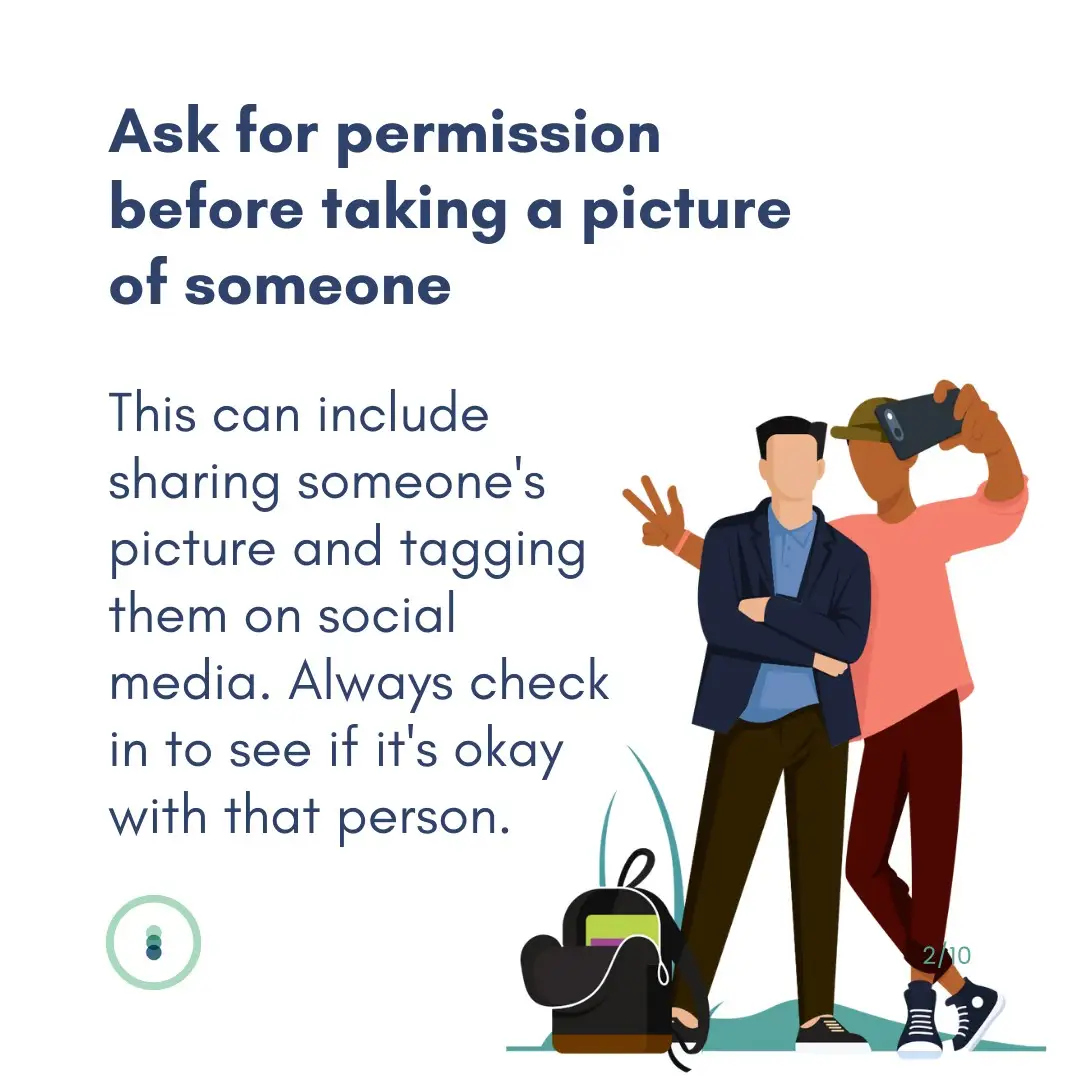
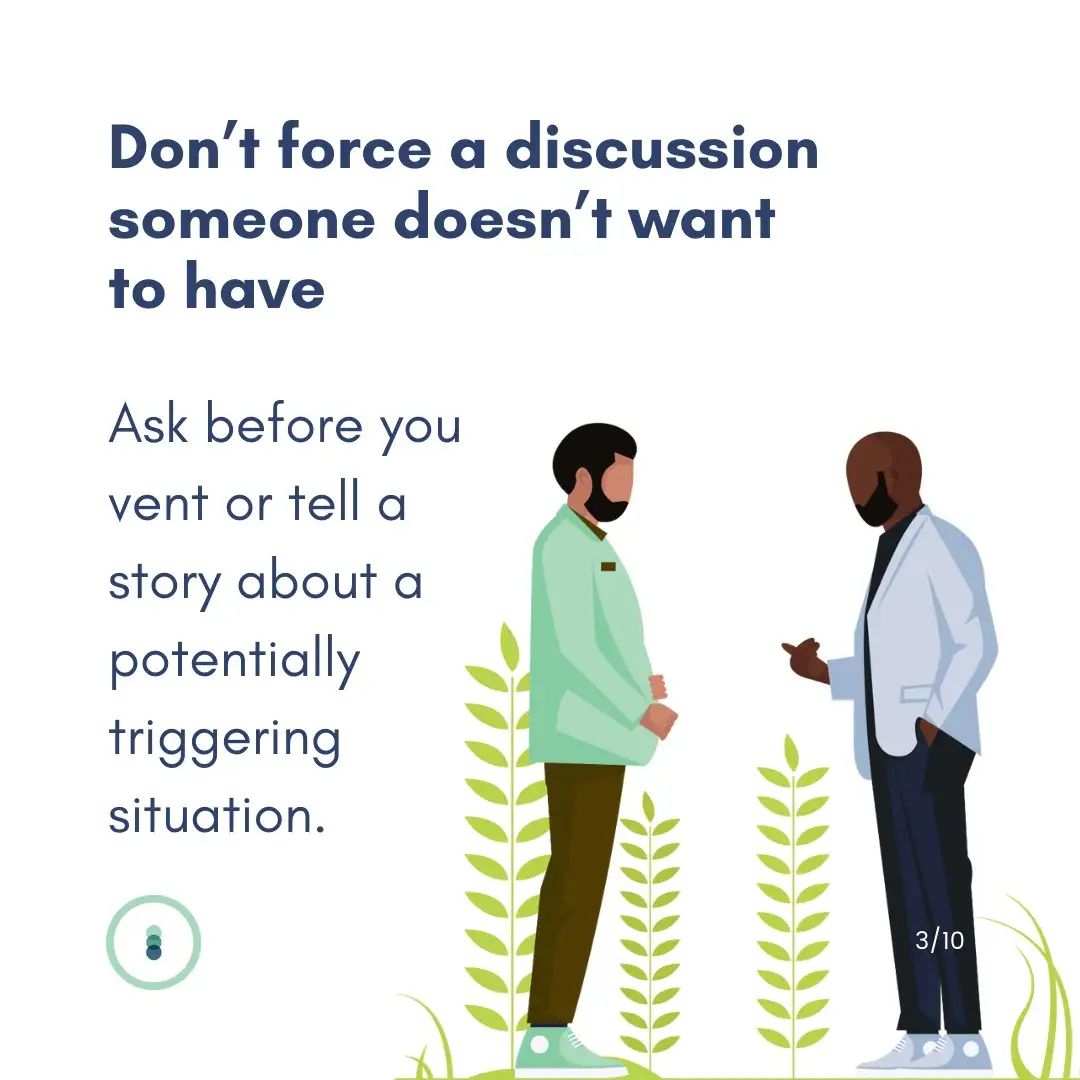
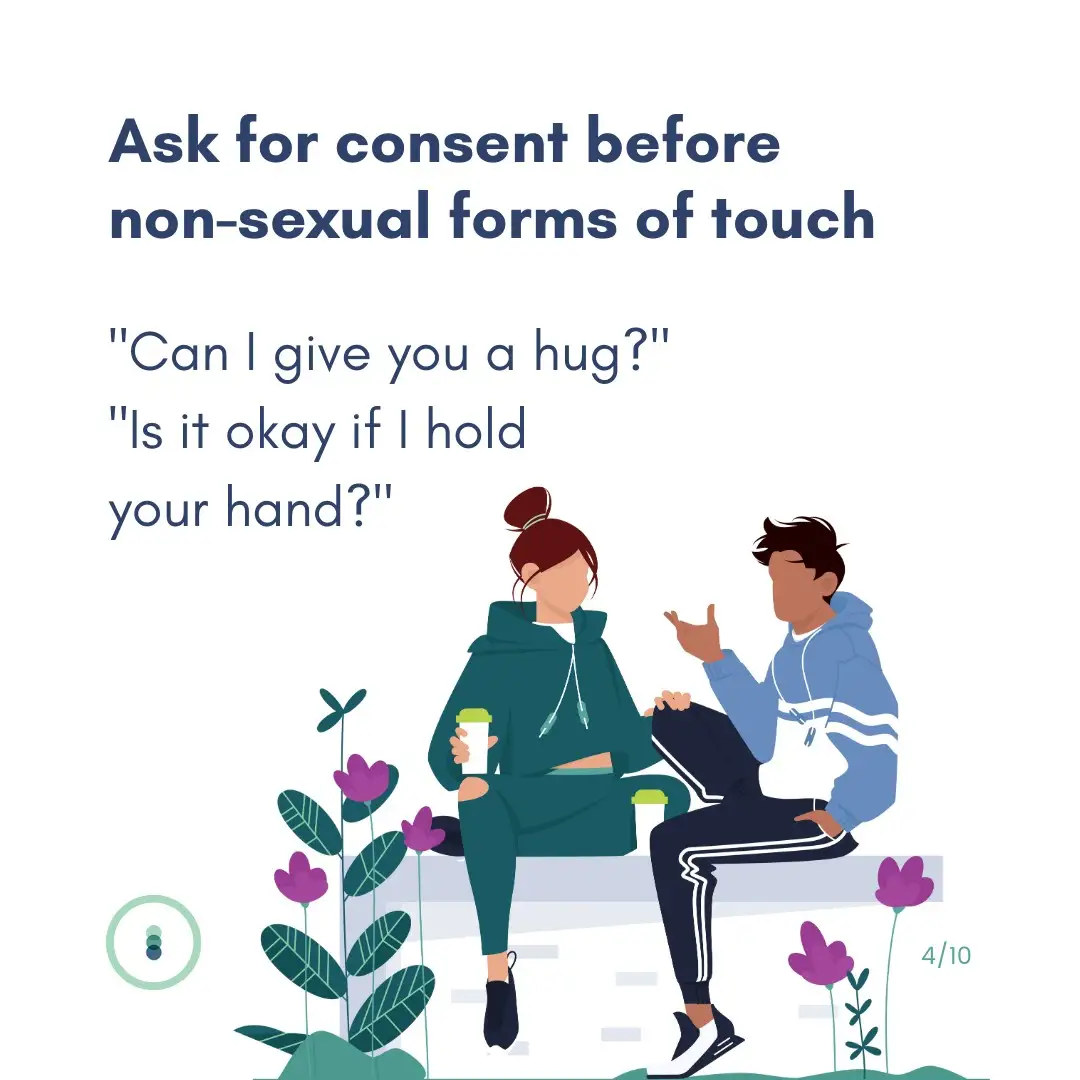

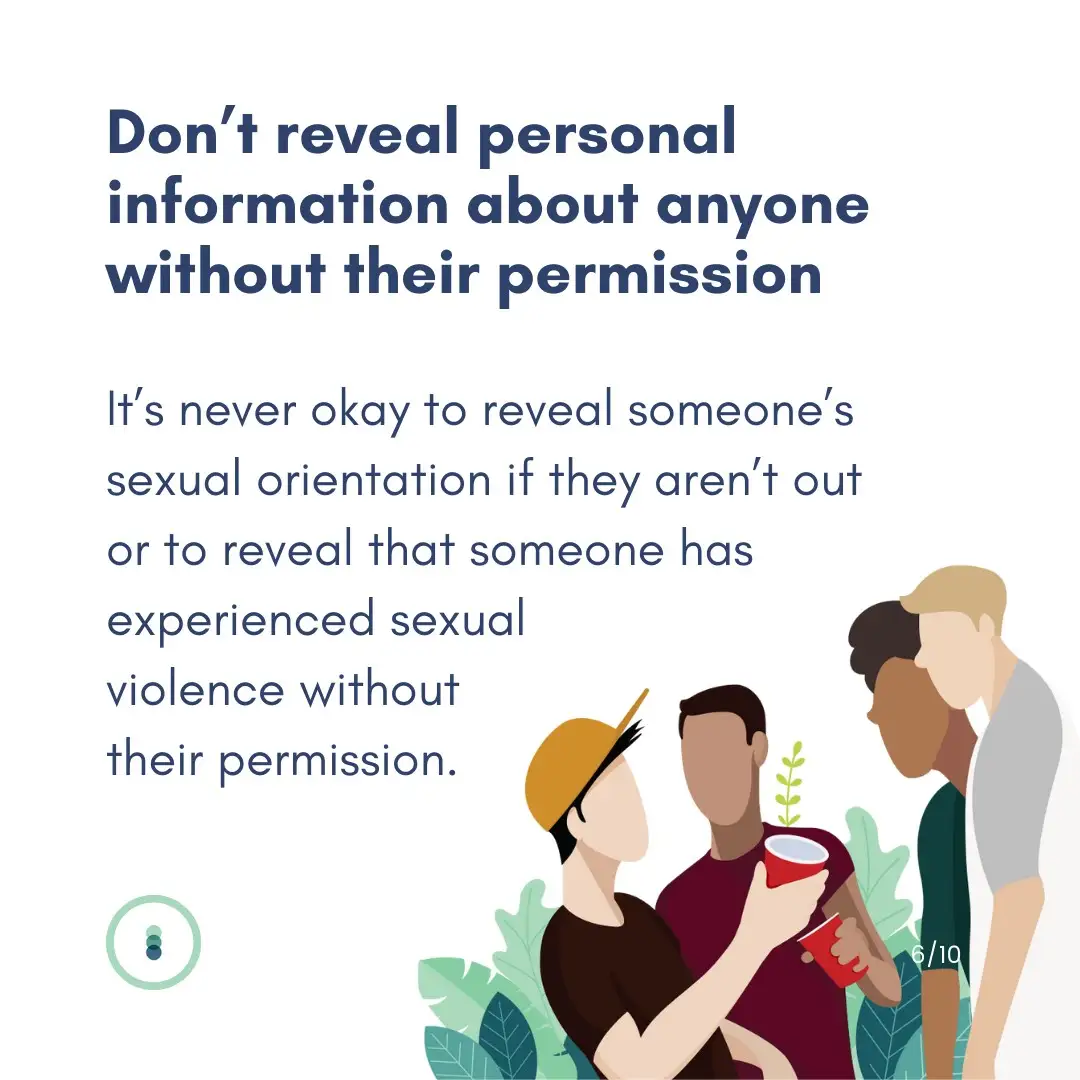
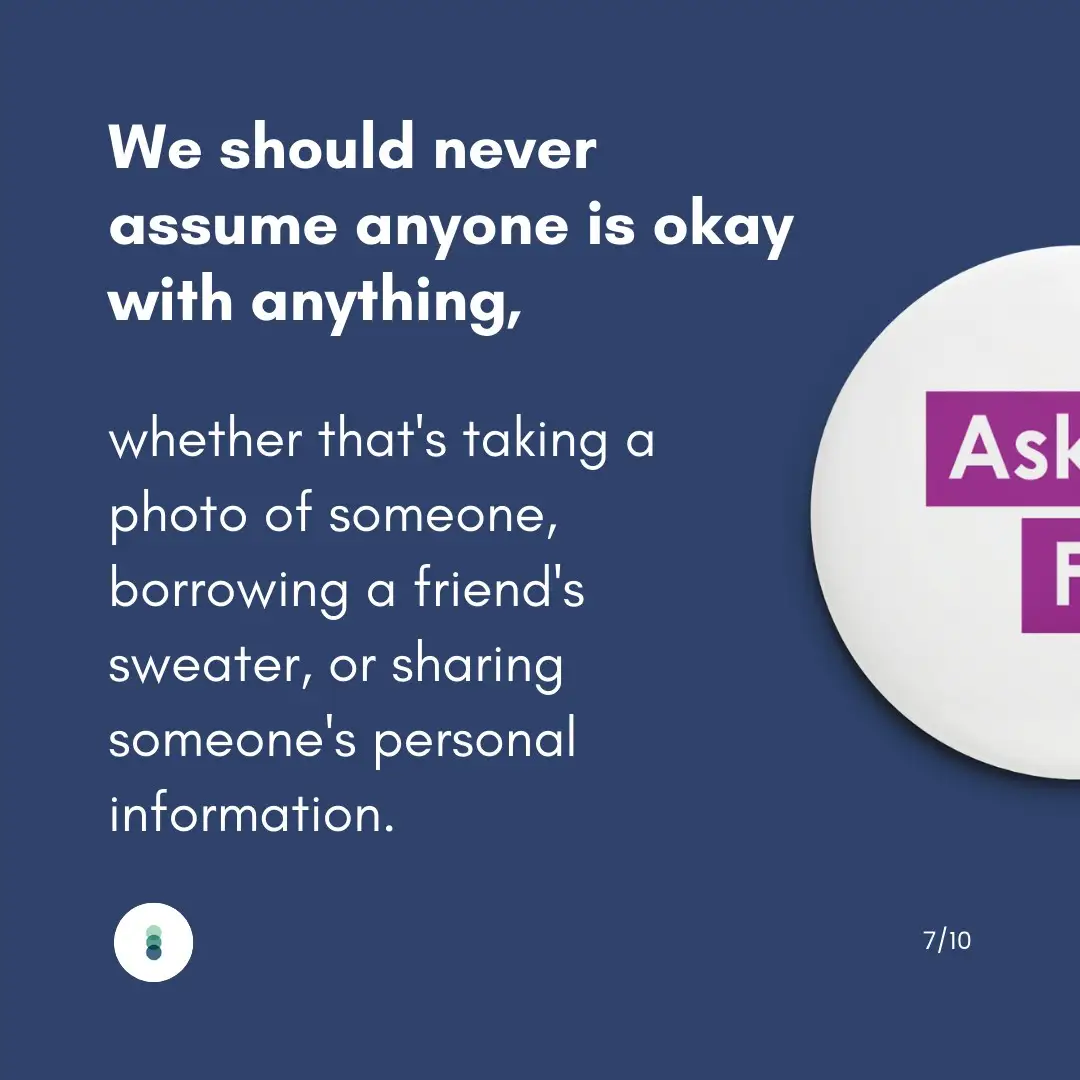
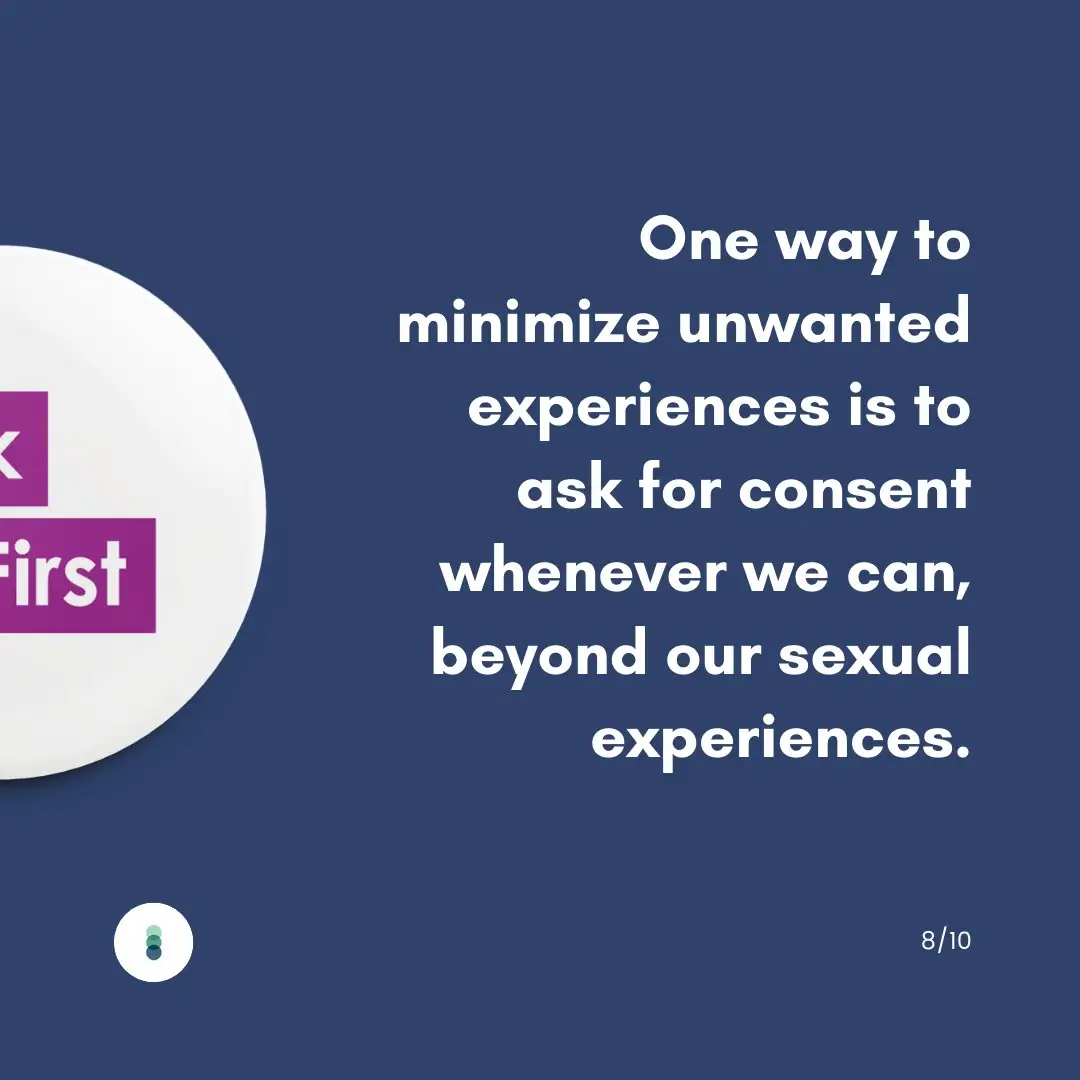
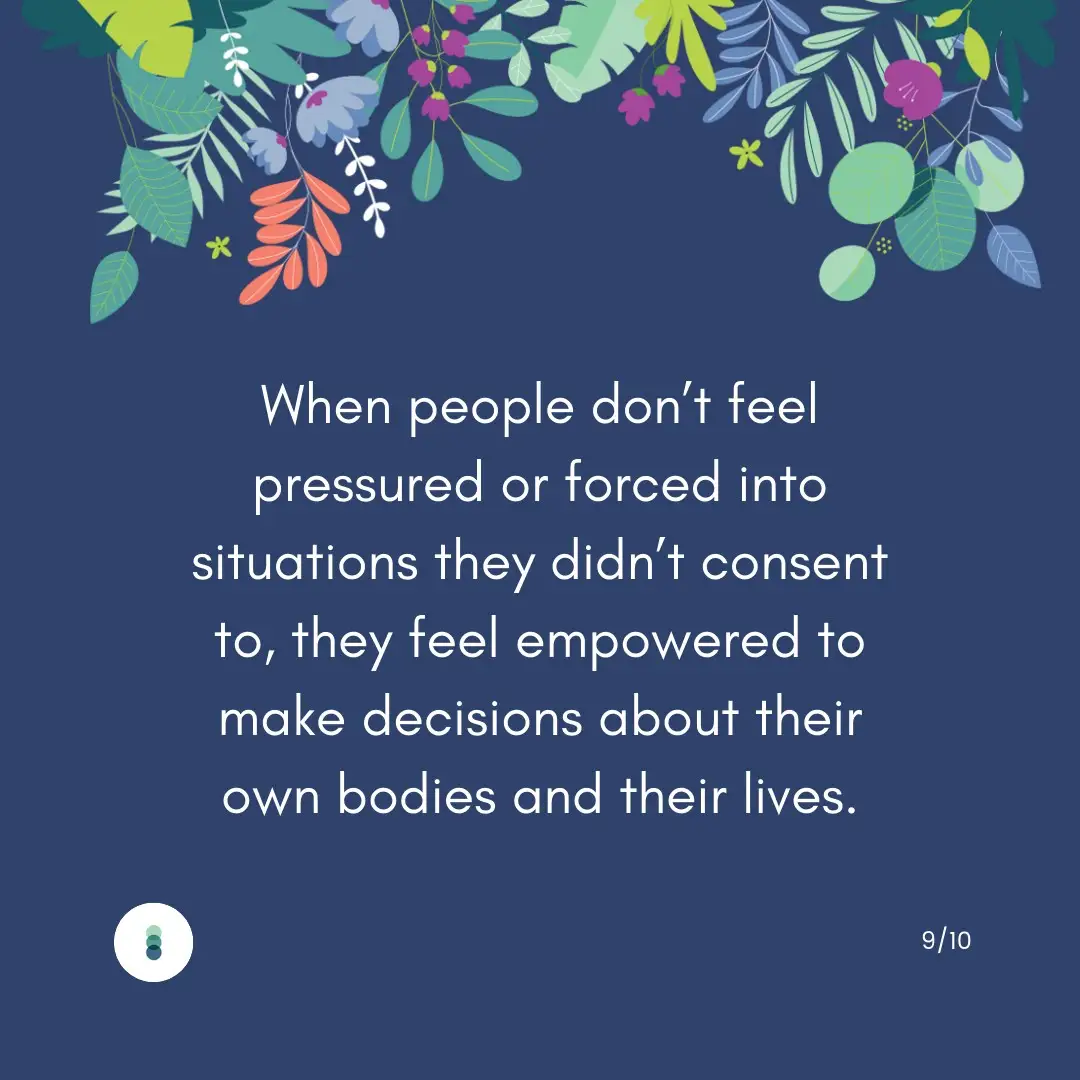

Cultivating Anti-Violence Allies & Leadership
“What Can I Do?”
We asked participants, and here’s some of what they shared:
[I THOUGHT THIS COULD BE A COOL WAY TO ILLUSTRATE IMPACT SINCE WE DON’T HAVE A STORY FOR THIS THAT ISN’T BEING USED ELSEWHERE– WE CAN DROP IT IF PREFERRED, OR SHOW THESE QUOTES AS ONE BIG TEXXT BLOCK VS SEPARATED QUOTES, OR DO A CAROUSEL– WOULD LIKE YOUR THOUGHTS.Four Ds of Bystander Intervention post on social media:
Anti-Oppressive, Person-Centred Trauma Counselling
As a feminist, trauma-informed, and person-centered counselling program, anti-oppressive approaches are built into the framework of the counselling provided at SACE. All clinical team members participate in the regularly scheduled anti-oppressive practice consultation and attend all-staff professional development arranged by the Diversity & Inclusion Committees. Additionally, where applicable, clinical team members connect with Indigenous knowledge keepers to support Indigenous clients in tandem with provision of psychological services, and Indigenous knowledge keepers continue to provide feedback to the clinical program about integrating Indigenous ways of healing with psychological practice. Finally, many of our current counsellors, including our new adult counsellors, integrate narrative therapy into their clinical approach. Narrative therapy is a depathologizing and post-structural approach to counselling, and thereby emphasizes social location and anti-oppression when working with all clients.
Post-SecondarySupport Story
In the early fall of 2023, the Northern Alberta Institute of Technology’s (NAIT) new Gender-Based and Sexual Violence Prevention and Education Coordinator contacted us to create and facilitate customized sessions on providing trauma-informed responses to sexual violence.
Our team consolidated feedback we received from past sessions and NAIT staff preferences when crafting each customized presentation. We facilitated four tailored sessions for diverse groups of NAIT staff, including 40 NAIT protective services staff, 25 student services staff, and 12 human resources staff.
The sessions were successful, with several participants indicating that these sessions were the first time they had encountered concepts such as intersectionality and trauma-informed responses. The Coordinator was also happy, and in early 2024, they reached out again asking our team to facilitate two more sessions for a variety of NAIT staff across many student service programs.
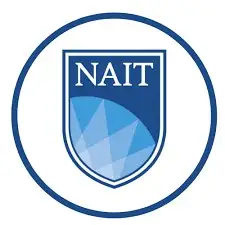
Advocating for Survivors
How You Are Making a Difference
SACE is supported by an incredible network of stakeholders and community members committed to addressing sexual violence. Without the contributions of our staff, volunteers, board members, community partners, funders, donors, and so many caring Edmontonians, we simply could not do the work that we do.
Learning how to take action
Providing support
Supporting SACE
This year, organizations and community members showed up for SACE in a big way. When the news came out about the funding cuts from the Government of Alberta, our agency was overwhelmed by the response from our community through all communications channels, including social media, phone calls, donations, and media requests. We received hundreds of comments and messages on our social media posts about the funding cuts from people who expressed dismay about the news and wanted to help, a 600% increase in engagement on Instagram, and calls flooded in from community members expressing concern over the impact that these funding cuts would have on their loved ones, their neighbours, and the vulnerable populations who require our life-saving services.
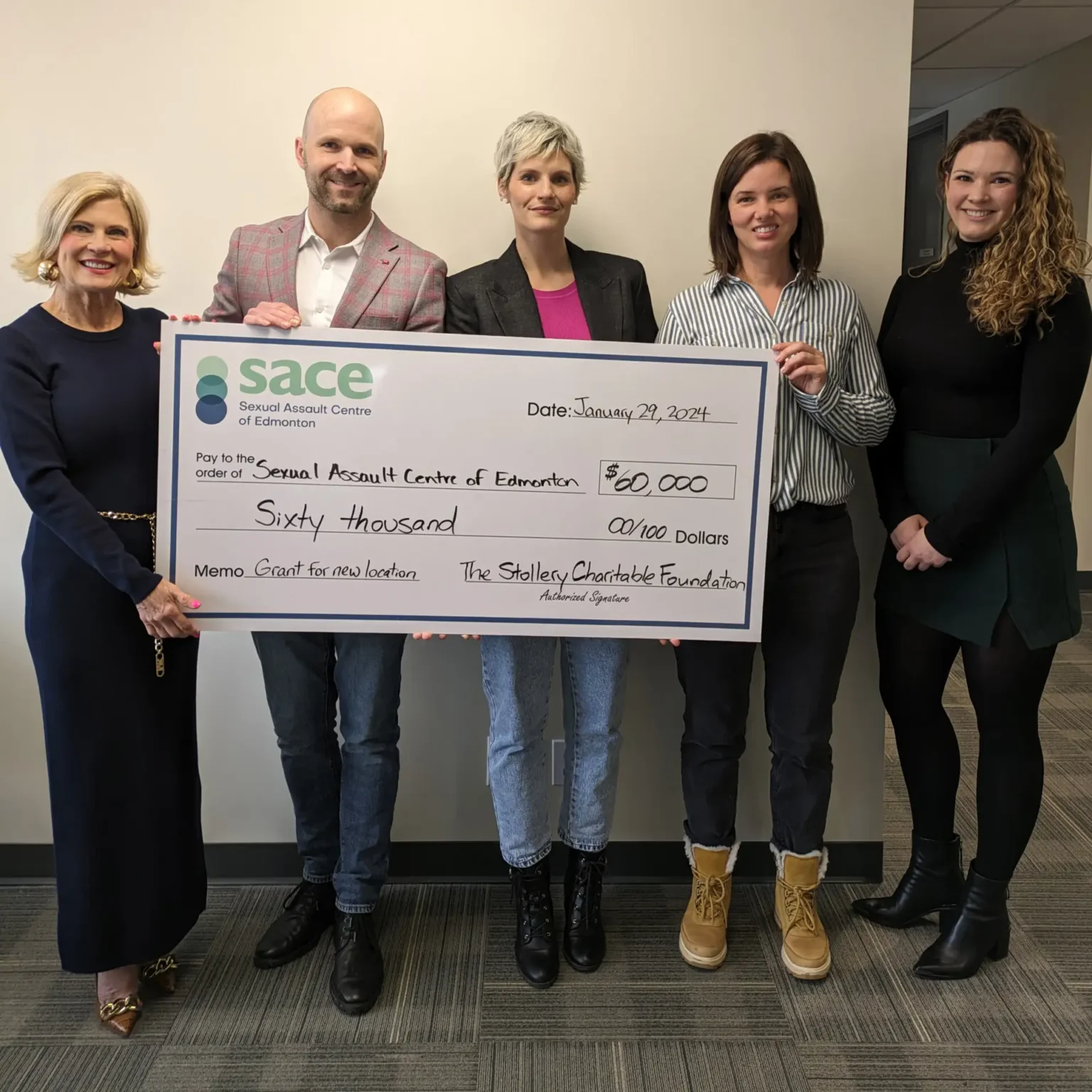

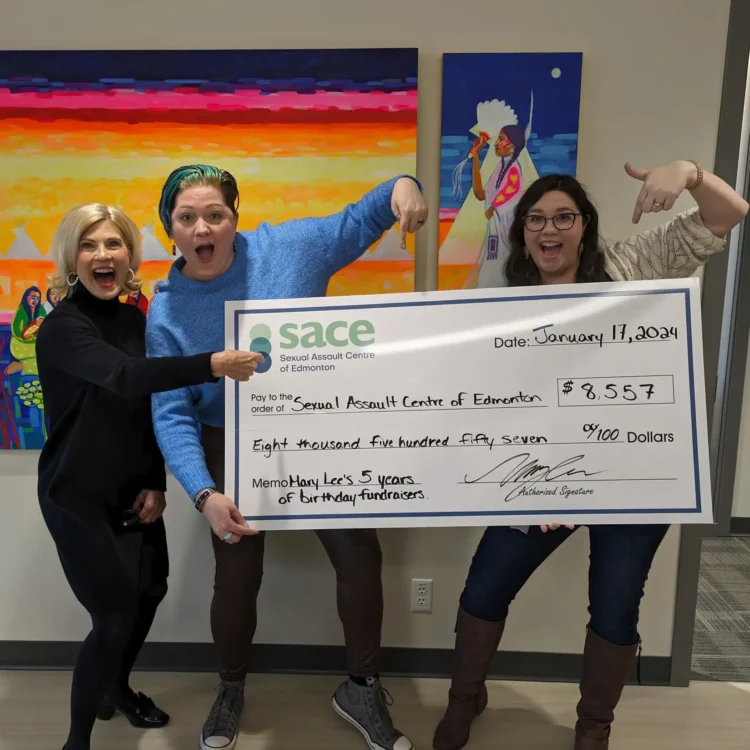
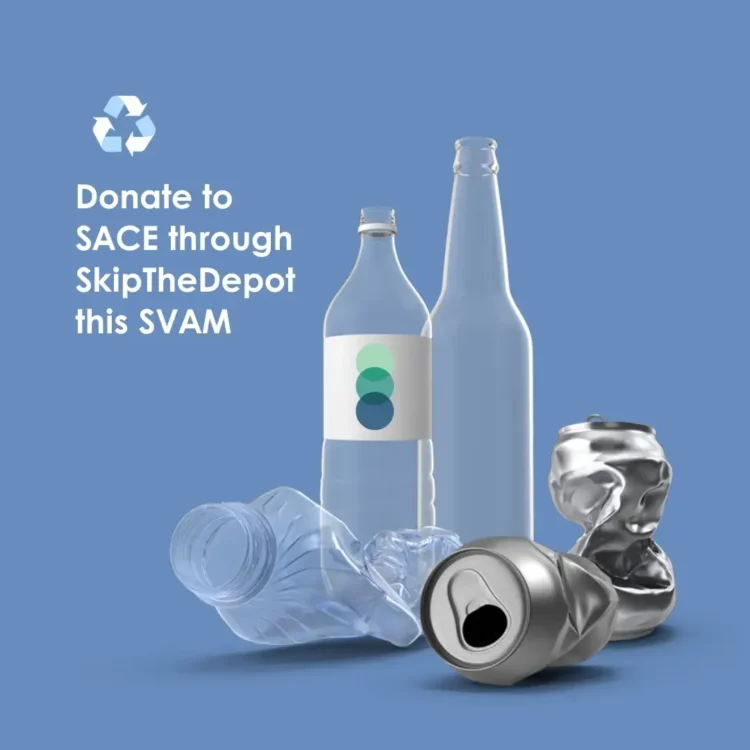
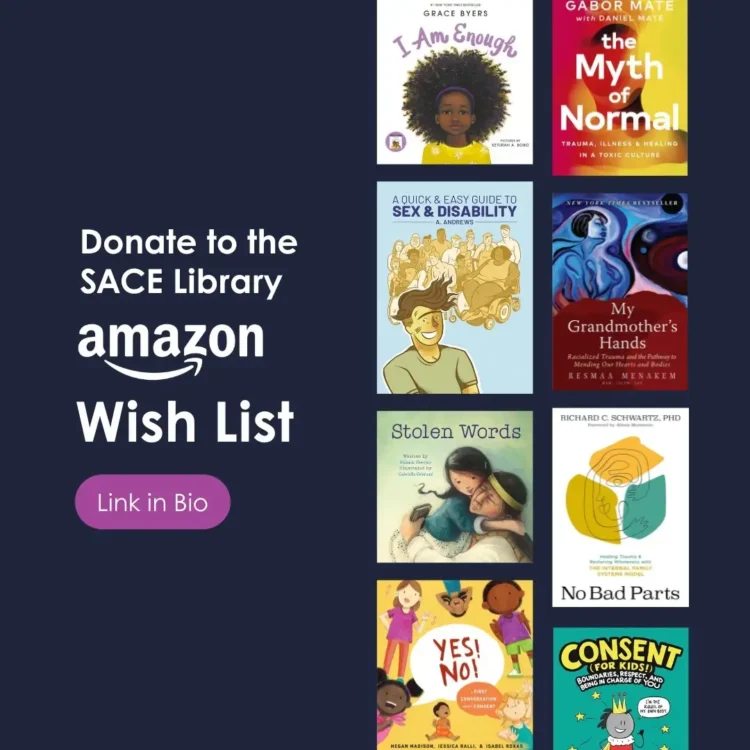
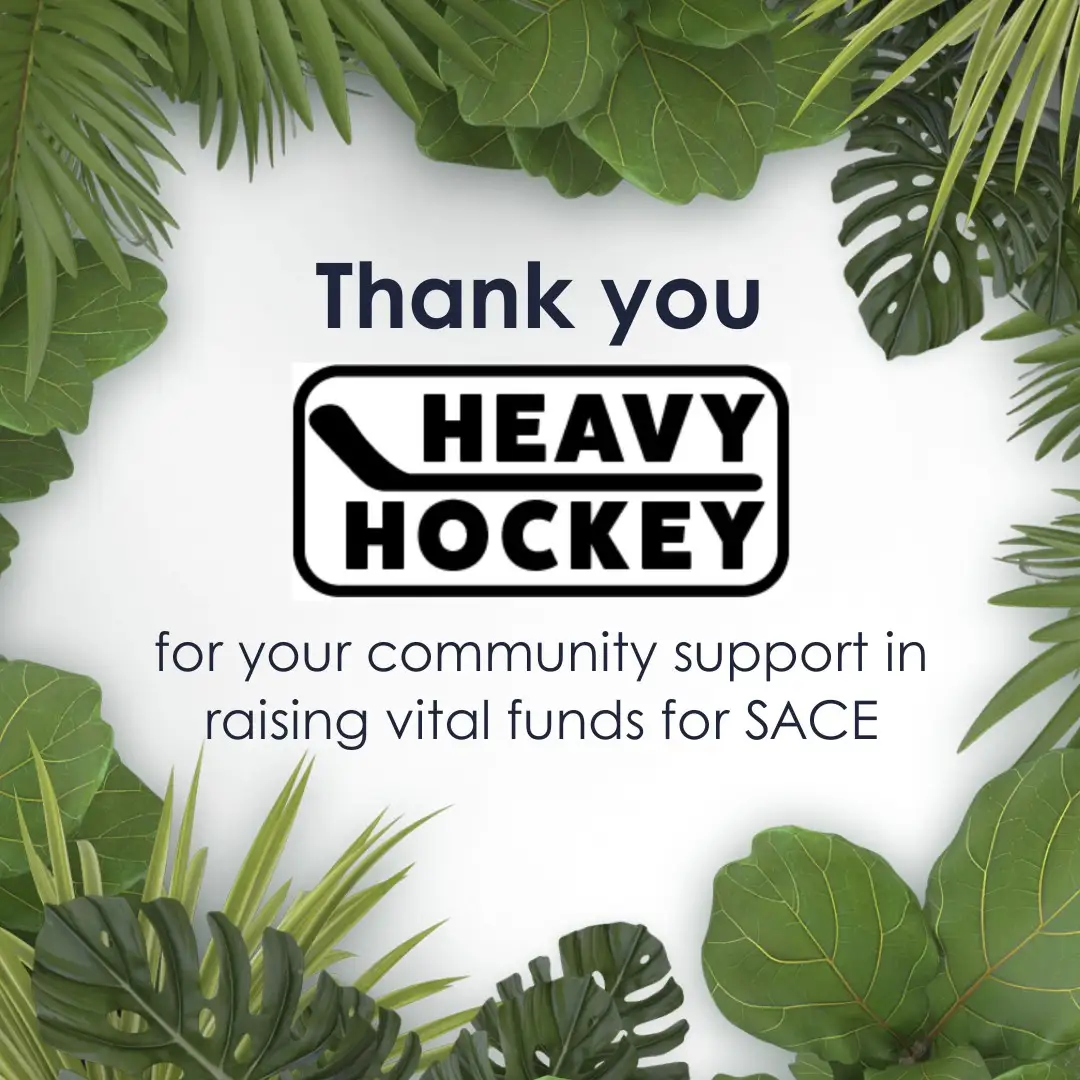
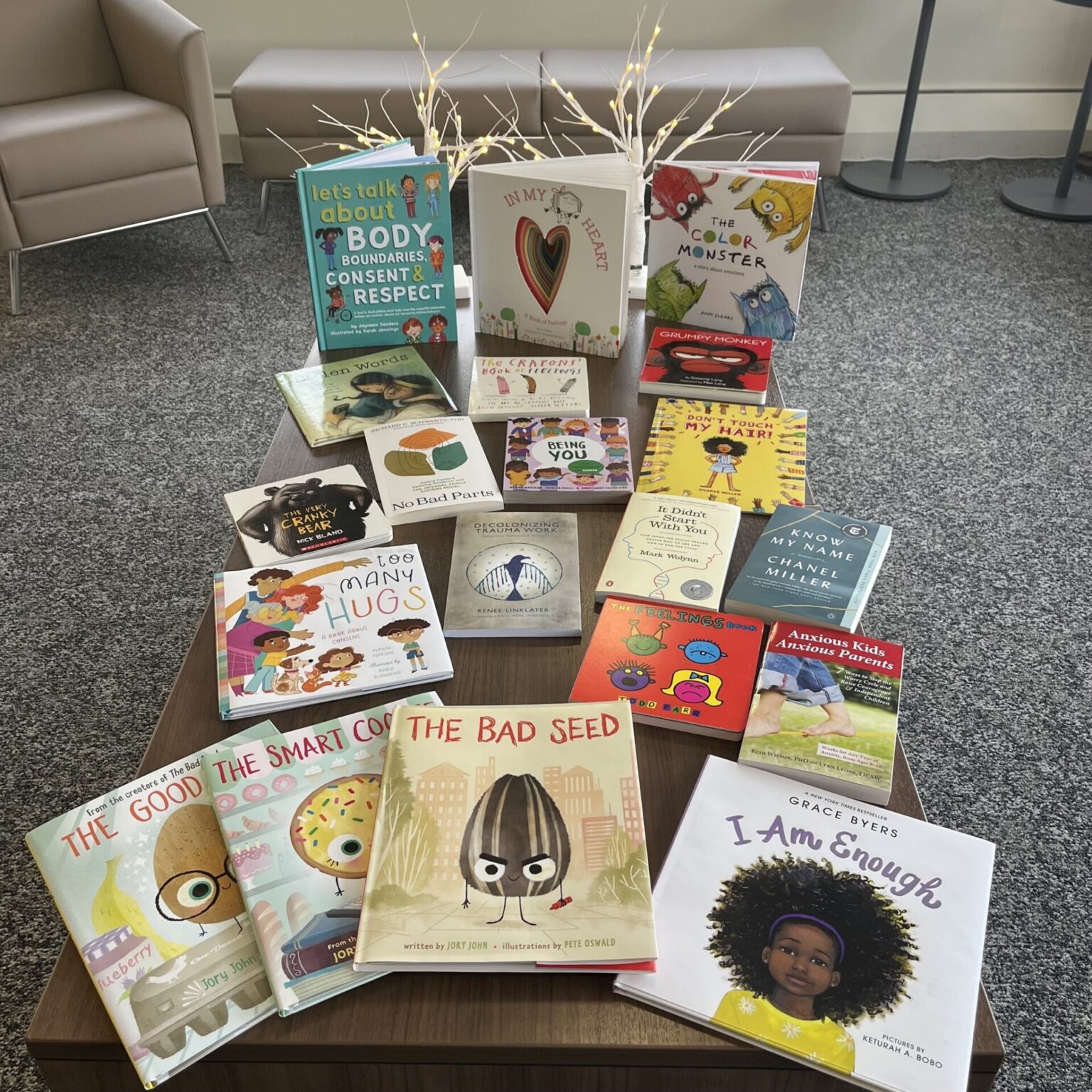
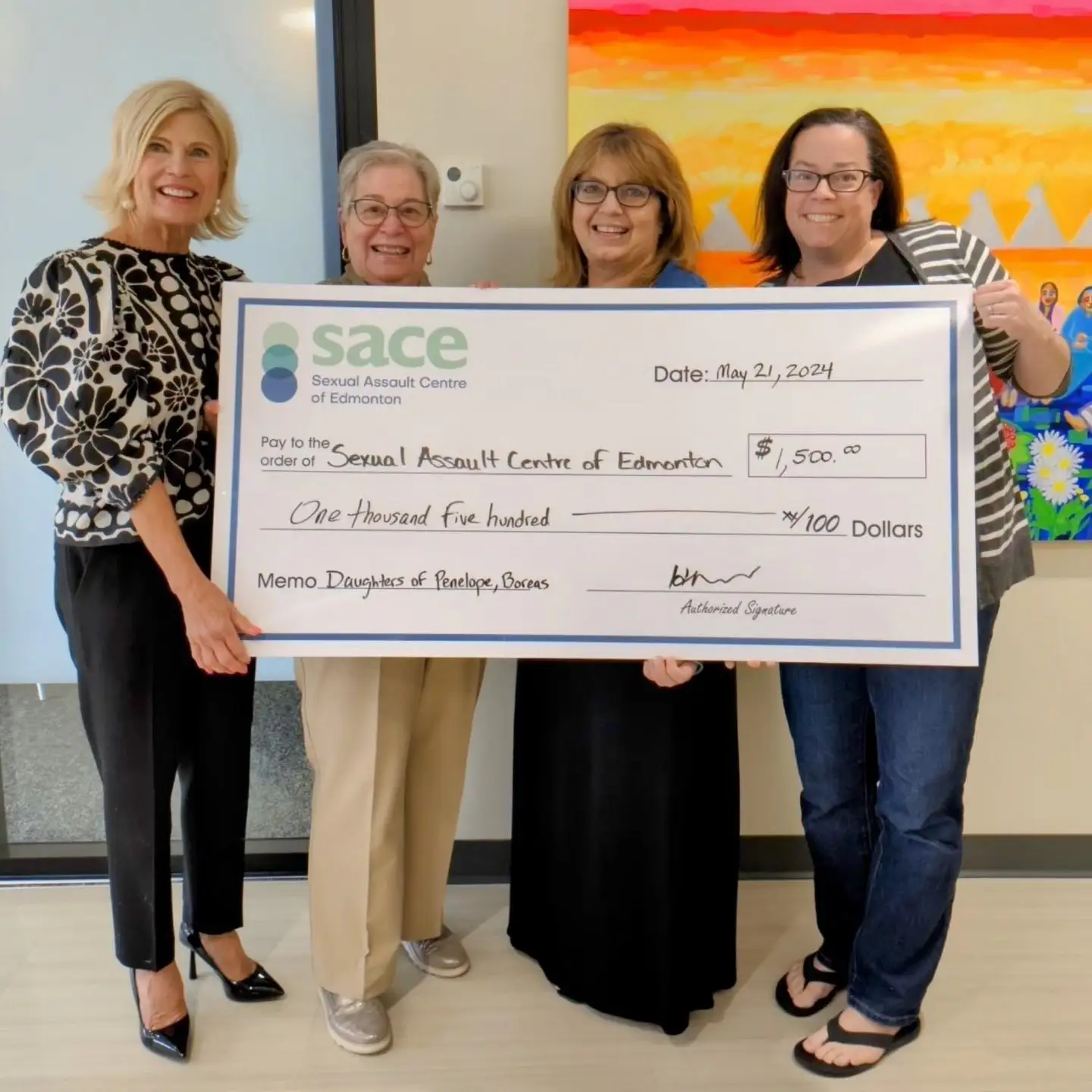
Volunteer Awards
In January 2024, SACE recognized some of our brilliant volunteers at our annual volunteer awards night.
We were also incredibly proud of SACE volunteer Tracy P. for winning an Alberta Blue Cross Community Wellbeing grant. Tracy was one of 75 people selected for this well-deserved award that recognizes volunteers making a difference and the charitable organizations with which they volunteer.
- Elizabeth R. was presented with the Rick Chalifoux / Jean Gauthier Memorial Volunteer of the Year Award, in honour of two SACE volunteers who worked on the crisis lines and fundraising.
- Mak M. won the Sprout Award, presented to the volunteer with the most growth and development in their first year of volunteering.
- Tessa H., Theresa M., Carolise B., Lauren T., Meagan S., Rowena D., David S., and Bel B. were recipients of Roots Awards, presented to any volunteer who reaches five or more years of active service with SACE.
